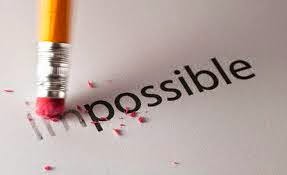In honor of Dyslexia Awareness Month.
The part I love most about writing is the first draft. It all pours out in a blur of activity. My office crackles with the sound of a clicking keyboard. The greatest moment is when I type “The End” and hit print. There’s no sound finer than the buzz of my HP spewing out the pages. Somehow, the moment that story, that book, is birthed into the material world, it’s legitimate and I’m a proud father every time. I have no shame or tact. I shove the thing under my wife’s nose for her opinion, irrespective of what she’s doing, whether it be watching TV or digging a tunnel to freedom. I don’t care because I know I’ve nailed it. That first draft is perfect—okay, some passages need trimming, others fleshing out, but one good read through and it’s done—right?
How I wish that were true.
The first part is true. I do love creating the first draft. Getting down those ideas and thoughts is the best. The heartbreak comes after my wife has given it the once over and the red pen comes out and I get back something resembling a used bandage instead of my tale.
The problem is that unlike most writers, I’m dyslexic. I must be a masochist. I have to be. I’ve chosen the one career 99.9% of dyslexics would choose to avoid.
Even though I know and understand my problem, I’m literally blind to it. I don’t see the mistakes—the incorrect words, the impossible sentences, bizarre language structure and the plain incomprehensible. My early drafts are laced with missing words penned in for me, passages circled with a question mark and comments where I might have gone wrong. At times, my wife must feel like she’s working with a Codetalker.
So first draft bliss dissolves into editing hell. It’s a chore and I hate it. I wish Microsoft had some gadget that would rewrite my work at the click of a button.
I’m blessed, though. My wife, Julie, has the right temperament to cut through my jumble. She’s my seeing-eye dog (she’s going to love that analogy), to guide me through the literary minefield I’ve created. Without her input, not one of my stories or novels would have been printed. I will forever be in her debt.
Besides Julie, my spelling and grammar checker is my other guide. I know a lot of writers turn them off, but I keep mine on. I may not take its advice, but I know it’s telling me there’s some dyslexic goof lurking there somewhere. It forces me to really focus.
Reading my work aloud has also been effective. It helps me uncover where my dyslexia has masked what I really wanted to say or to discover that I’ve written something I didn’t want to say. When Julie reads, the issue presents itself in gory detail and sounds like fingernails drawn down a blackboard. When I read, Julie stops me after a sentence or two to point out that what I’ve read and what I’ve written are totally different. Whatever misfire is floating around in my brain, we do overcome it.
Some might say it’s very nice to have a proofreader every step of the way and it is, but it’s equally as frustrating. It’s tough relying on someone else to tell you where you’ve gone wrong. It’s like being fluent in a foreign language, but only on a verbal level, and being ignorant of the written language. I want to be able to correct the obvious. So at times, I’m not considerate or patient. It goes without saying that it creates a strain on both Julie and me. But the writing credits I’ve built up over the last six years have been the reward.
We’ve come a long way from when I announced one Halloween night that I was going to give writing a shot. Writing has helped my dyslexia by reducing the errors my befuddled brain produces. Dyslexia has always been my shame and I’m glad I’ve put it in its place—right next to my expanding row of books.


